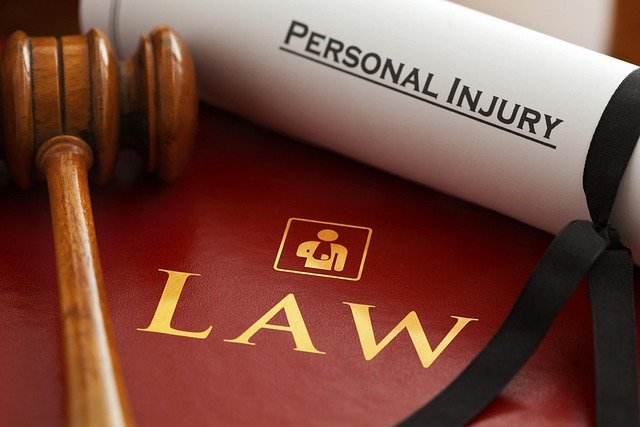Comprehensive Guide to Legal Services
Legal services are professional legal advice, counsel, and assistance provided by lawyers to help clients navigate the legal system and protect their rights. These services can include representation in court, dispute resolution, and advice on a wide range of matters like family law, property, criminal defense, and business contracts. Individuals and organizations can access these services through various means, such as private lawyers, government-funded legal aid, or free helplines.

Legal services play a crucial role in protecting rights, resolving disputes, and ensuring justice is accessible to everyone. From individual consultations to full representation in court, legal professionals offer a wide range of support tailored to various situations. Understanding what legal services are available and how they function can empower you to seek appropriate help when needed.
What is the Purpose of Legal Services?
Legal services exist to provide individuals and organizations with expert guidance through complex legal systems. They help interpret laws, prepare legal documents, represent clients in court, and negotiate settlements. The primary purpose is to ensure that people can exercise their rights, fulfill obligations, and resolve conflicts in accordance with the law. Legal professionals also work to prevent legal problems by offering proactive advice on contracts, compliance, and risk management. Whether dealing with criminal charges, civil disputes, business transactions, or estate planning, legal services bridge the gap between everyday people and the intricate legal framework that governs society.
How Many Types of Legal Services Are There?
Legal services encompass a broad spectrum of specializations, each addressing different areas of law. Common categories include criminal defense, family law, personal injury, employment law, immigration, real estate, estate planning, business and corporate law, intellectual property, and bankruptcy. Within these categories, lawyers may further specialize in niche areas such as medical malpractice, environmental law, or tax law. Some legal professionals focus on litigation, representing clients in court, while others concentrate on transactional work like drafting contracts or handling mergers. Additionally, legal services can be delivered through private law firms, public defenders, legal aid organizations, corporate legal departments, and government agencies. The diversity of legal services reflects the complexity of modern legal systems and the varied needs of individuals and businesses.
Understanding Legal Aid Counsel
Legal aid counsel refers to legal representation provided to individuals who cannot afford private attorneys. These services are typically funded by government programs, nonprofit organizations, or pro bono work by private lawyers. Legal aid organizations focus on civil matters such as housing disputes, domestic violence cases, consumer rights, and public benefits issues. Eligibility for legal aid usually depends on income level and the nature of the legal problem. In criminal cases, defendants who cannot afford an attorney are provided with a public defender at no cost. Legal aid counsel ensures that financial barriers do not prevent people from accessing justice and receiving fair treatment under the law. While resources are often limited, these services play a vital role in supporting vulnerable populations and upholding the principle that everyone deserves legal representation.
Understanding No Win No Fee Lawyers
No win no fee arrangements, formally known as contingency fee agreements, allow clients to hire lawyers without paying upfront costs. Under this model, the attorney only receives payment if the case is won or settled favorably. Typically, the lawyer takes a percentage of the awarded compensation, which can range from 25 to 40 percent depending on the complexity and stage of the case. This arrangement is common in personal injury claims, medical malpractice suits, and employment discrimination cases. It reduces financial risk for clients who might otherwise be unable to afford legal representation. However, clients should understand that while attorney fees are contingent on success, they may still be responsible for certain costs such as court filing fees, expert witness fees, and administrative expenses. No win no fee agreements make legal services more accessible and align the lawyer’s interests with achieving the best possible outcome for the client.
Choosing the Right Legal Service for Your Needs
Selecting appropriate legal representation depends on several factors including the nature of your legal issue, your budget, and the complexity of the case. For straightforward matters like drafting a will or reviewing a contract, you might consult a general practitioner or use online legal services. More complex situations such as criminal charges, major lawsuits, or business formations typically require specialized attorneys with relevant experience. When evaluating potential lawyers, consider their track record, communication style, fee structure, and availability. Many attorneys offer free initial consultations, which provide an opportunity to discuss your case and assess whether the lawyer is a good fit. Additionally, check credentials, read client reviews, and verify that the attorney is licensed and in good standing with the state bar association. Taking time to research and compare options can significantly impact the outcome of your legal matter.
Accessing Legal Services in Your Area
Finding quality legal services locally involves several strategies. Start by asking for recommendations from friends, family, or colleagues who have had similar legal needs. State and local bar associations maintain referral services that can connect you with qualified attorneys in your area. Many communities also have legal aid societies and nonprofit organizations offering free or low-cost services to eligible individuals. Online directories and legal matching platforms allow you to search for lawyers by practice area and location, often including client reviews and ratings. Law school clinics provide another resource, where supervised students offer legal assistance under faculty guidance. For immediate questions, some jurisdictions offer legal hotlines or walk-in clinics where you can receive brief consultations. Understanding the resources available in your community ensures you can access appropriate legal support when needed.
Legal services form the backbone of a functioning justice system, providing essential support across countless situations and helping individuals navigate complex legal landscapes. Whether you require assistance through legal aid programs, prefer the security of a no win no fee arrangement, or need specialized representation, understanding your options empowers you to make informed decisions. By recognizing the purpose and variety of legal services available, you can better protect your rights and interests when legal challenges arise.




